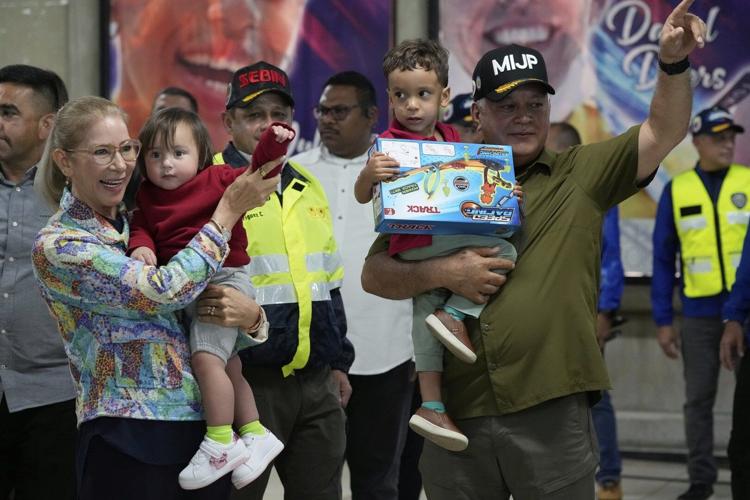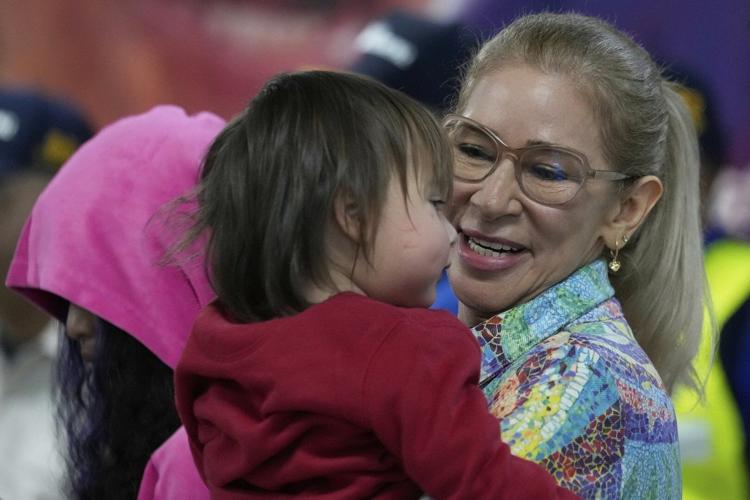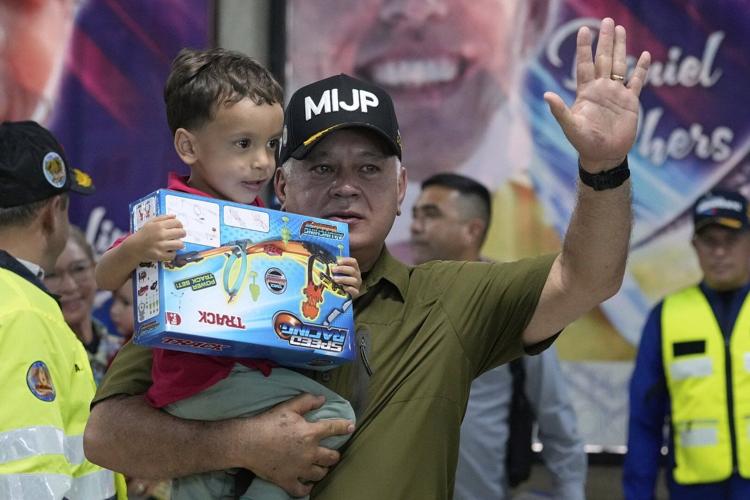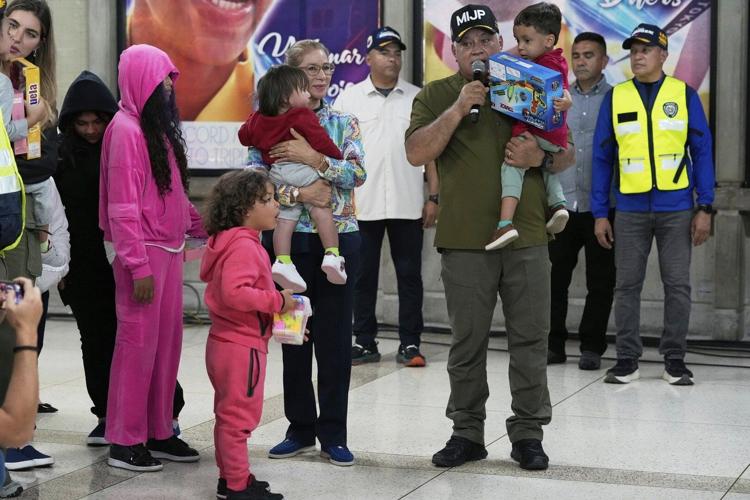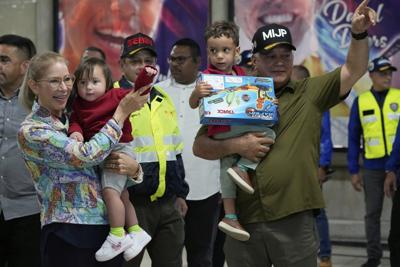CARACAS, Venezuela (AP) — Venezuela released 10 jailed Americans Friday in exchange for getting home scores of migrants deported by the United States to El Salvador months ago under the Trump administration’s immigration crackdown.
The resolution represents a diplomatic achievement for Venezuelan President Nicolás Maduro, helps President Donald Trump in his goal of bringing home Americans jailed abroad and lands El Salvador a swap that .
Secretary of State Marco Rubio thanked Trump and Salvadoran President Nayib Bukele for securing the agreement.
“Ten Americans who were detained in Venezuela are on their way to freedom,” Rubio tweeted.
El Salvador will send back some 300 Venezuelan migrants after the Trump administration to house them in a notorious Salvadoran prison. The arrangement drew immediate blowback when Trump invoked an to quickly remove men his administration had accused of belonging to the violent street gang.
The Venezuelans have been held in a mega-prison known as , or CECOT, which was built to hold alleged gang members in Salvadoran President Nayib Bukele’s war on the country’s gangs. Human rights groups have documented hundreds of deaths and inside its walls.
The release of the Venezuelans is an invaluable win for Maduro as he presses his efforts to assert himself as president despite last year. Long on the receiving end of accusations of human rights abuses, Maduro for months used the men’s detention in El Salvador to flip the script on the U.S. government, forcing even some of his strongest political opponents to agree with his condemnation of the migrants’ treatment.
The migrants’ return will allow Maduro to reaffirm support within his shrinking base, while it demonstrates that even if the Trump administration and other nations , he is still firmly in power.
Venezuelan authorities detained nearly a dozen U.S. citizens in the second half of 2024 and linked them to alleged plots to destabilize the country. They were among the dozens of people, including activists, opposition members and union leaders, that Venezuela’s government took into custody in its brutal campaign to in the 11 months since Maduro claimed to win reelection.
The U.S. government, along with several other Western nations, does not recognize Maduro’s claim to victory and instead points to tally sheets collected by the showing that its candidate, , won the July 2024 election by a more than a two-to-one margin.
The dispute over results prompted immediate protests, and the government responded by , mostly poor young men. González fled into exile in Spain to avoid arrest.
Despite the U.S. not recognizing Maduro, the two governments have carried out other recent exchanges.
In May, after about six months in detention. Scott St. Clair’s family has said the language specialist, who served four tours in Afghanistan, had traveled to South America to seek treatment for post-traumatic stress disorder.
St. Clair was handed over to Richard Grenell, Trump’s envoy for special missions, during a meeting on a Caribbean island.
Three months earlier, whom the U.S. government considered wrongfully detained in Venezuela were released after Grenell met with Maduro at the presidential palace.
Grenell, during the meeting in Venezuela’s capital, Caracas, urged Maduro to take back deported migrants who have committed crimes in the U.S. Hundreds of Venezuelans have since been deported to their home country, but more than 200 deported from the U.S. have been held since mid-March at the prison in El Salvador.
Lawyers have little access to those in the prison, which is heavily guarded, and information has been locked tight, other than heavily produced state propaganda videos showing tattooed men packed behind bars.
As a result, prominent human rights groups and lawyers working with the Venezuelans on legal cases had little information of their movement until they boarded the plane.
___
Tucker reported from Washington and Janetsky from Mexico City.

